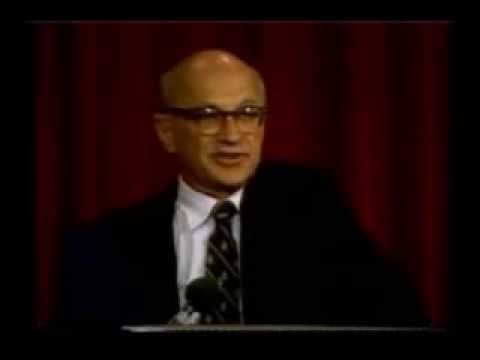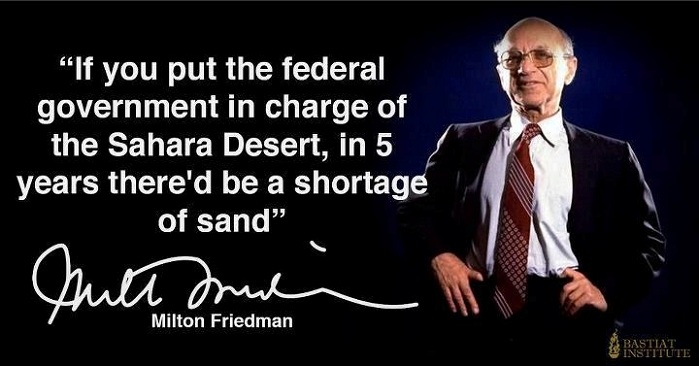A must see!
Nobel Laureate Economist Milton Friedman explores the unsettling dynamics set into motion when government imposes itself into the health care system. (1978)
Everything old is new again.
The genius of Milton Friedman is that his economic insights are as powerful as they are timeless. Despite the fact that these comments were made more than thirty years ago in 1978 at the Mayo Clinic, they ring as true today as they did then. Milton Friedman’s six-part video series below on the economics of medical care is especially timely, in light of the fact that the Supreme Court ruled in favor of Obamacare this week and Milton Friedman predicted in this lecture that increased government involvement in health care would lead inevitably to completely socialized medicine. This Mayo Clinic lecture is also a testament to Milton Friedman’s effectiveness at delivering the message of individual liberty and limited government in a convincing and non-threatening way, as Milton explains diplomatically to an audience of physicians how the “power of organized medicine” led to significant restrictions on entry to their profession through the American Medical Association’s control over occupational licensing for physicians, which has contributed to the rising costs of medical care.
Milton Friedman: “I’m going to talk today about the economics of medical care. This in an area, in which we all know there has been a trend toward ever-greater government involvement. One step in this area inevitably leads to another. We have had an expansion of government involvement in the spending of money – Medicare, Medicaid funds, expenditures by the Department of Health, Education and Welfare for other medical purposes have been growing by leaps and bounds. They have gone from a very tiny portion of the total national expenditures on medical care to a substantial portion. If this trend continues, it inevitably leads to completely socialized medicine. I believe that this trend is very much against the interest of patients, physicians, and other health care personnel. And in the brief time I have to today, I want to explain why I believe the trend is so much against their interest, why it has occurred, and what, if anything can be done about it.”


